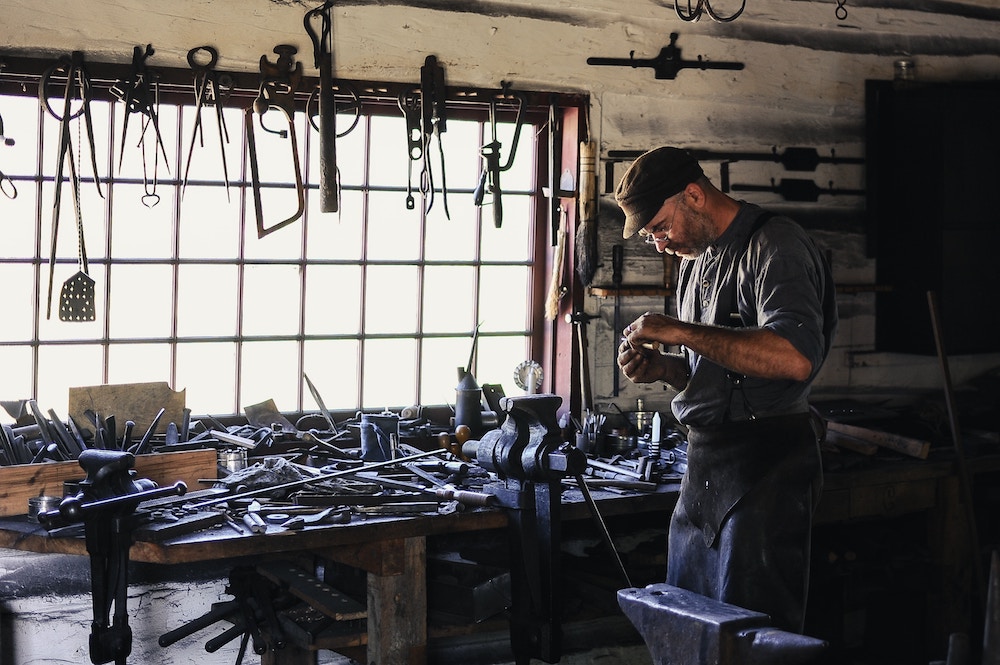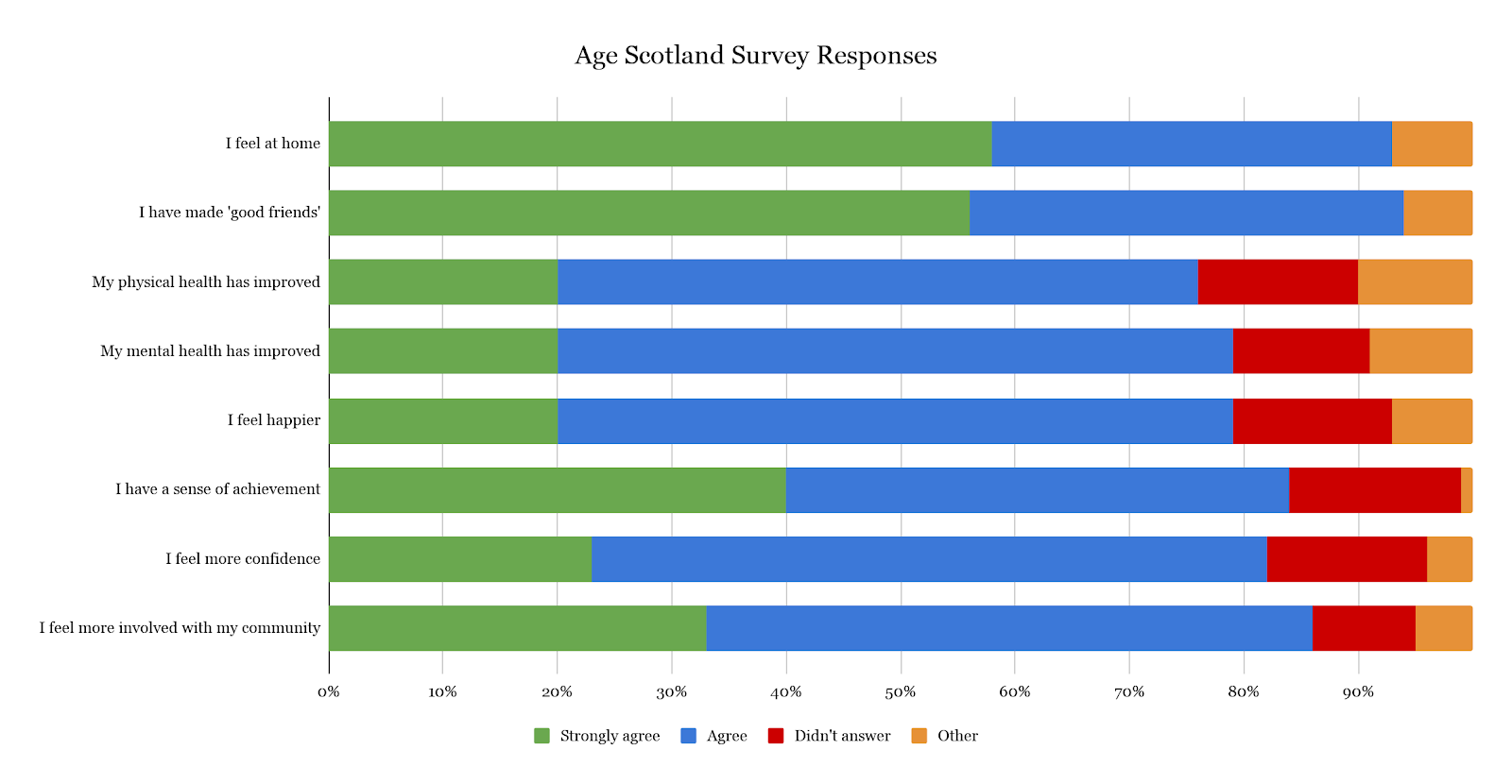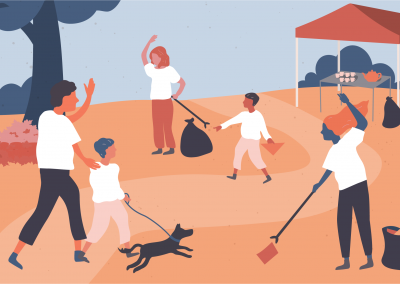Case study: The Scottish Men’s Sheds Association
Helping Men Improve Health with Relationships
Introducing Men’s Sheds
Men’s Sheds are places for men to meet to improve health and social outcomes. They originated in Australia circa 1995, and are generally set up as voluntary non-profit (SCIO charities). Over 1,500 Men’s Sheds now exist across the world, with this number expanding exponentially.
The Scottish Men’s Sheds Association charity (SMSA), started in 2014, fits within this global umbrella. It supports the developmental needs of Scotland’s grassroots Men’s Sheds movement, which now numbers 131 open Sheds and a further 55 in development.

The SMSA is careful not to prescribe precisely what a Men’s Shed must be, but does offer this definition: “a permanent meeting place for men where lots of good community and healthy ‘self and group determined’ experiences take place. They take place by ‘everyday’ men with ‘time on their hands’ willing to act with the skills they already have within their local community.” The SMSA looks to provide, “maybe for the first time, an ethos and a place for men who are appreciated for who they are and not defined by what they do.”
How do Men’s Sheds work?
Men’s Sheds are places for men, usually over the age of 18, to socialise and share skills to improve health outcomes. Sheds can take any physical form, and the projects and social activities in each Shed are based on the interests of its members. Crucially, men are welcomed not on the basis of what they do or have done, but who they are.
Sheds tend to have a two-tier constitution of members and board members, with each Shed totally responsible for funding and running itself. Each Shed is run by a volunteer Shed Committee, made up of members. Men’s Sheds are typically founded, as the SMSA notes, by “someone thinking ‘Wouldn’t it be great if we had a Men’s Shed here?’”
The SMSA offers multiple support levels to help with this, on topics such as becoming an SCIO charity, community asset transfers, funding, insurance, health and safety, risk assessments, good governance and Shed sustainability. The SMSA also has a range of online resources to help people found Men’s Sheds in Scotland, including an extensive 45-page website with a ‘Find a Shed’ map, Facebook and Twitter groups, forums, a YouTube channel, memberships, newsletters, signposting and how-to guides.
The SMSA also recognises and works to solve a range of sustainability challenges. SMSA research partners Glasgow Caledonian University are presently doing a three-year research project (funded by The Big Lottery Community Fund), and recently published initial findings highlighting a range of common problems Sheds face. Most notable are securing funding, ensuring necessary expertise, an over-reliance on enthusiastic volunteers, the acquisition of premises, recruiting younger members, encouraging members to share skills and promoting the Shed.
Men’s Sheds have been conceived in the context of a range of alarming facts around (originally older) men’s physical and mental health. Not only are men more likely than women to be obese, commit suicide and feel socially isolated; they are also on average less likely to feel equipped to speak about their health problems. By providing a healthy space in which men can do just that – initially speaking “shoulder to shoulder” while working on mutual projects – Men’s Sheds are designed to tackle many of these outcomes.
What impact are Men’s Sheds having?
Social impact
The research found that Scottish Men’s Sheds are almost universally found to have a positive impact on health, wellbeing and the wider community – all things repeatedly referenced through the surveys and interviews. The chart below summarises the key findings around the reported effects of survey respondents’ involvement with Men’s Sheds. It shows the survey statement on the vertical axis and the percentage of respondents to have responded with each response along the horizontal axis.

It is important to note that, though we’ve focused on Scotland here, and there are no doubt local idiosyncrasies in the effects of Men’s Sheds, these findings are entirely in keeping with research from elsewhere in Scotland and internationally.
Moreover, in addition to the individual benefits for Shedders, it is important to consider the impact their various projects – many of which are community focused – have on their wider communities.
Economic impact
There is a lack of quantitative research into how these reported health benefits are translating into improved objective health outcomes and, in turn, NHS cost savings. This work would be valuable. Nevertheless, especially in light of similar projects like Compassionate Frome, it seems a safe assumption that this increased sociality and perceived health improvement is resulting in considerable NHS cost savings. Each GP visit, for instance, costs the NHS around £30.
returned for every £1 spent on Men's Sheds
What’s more, in 2015 Social Return on Investment (SroI) was calculated for Scotland’s first Men’s Shed – in Westhill, Aberdeenshire – covering a year. It found that for every pound invested, a social return of £9.80 (1:10) was realised. This level of return is almost unprecedented, and the long-term national financial benefits of Sheds far outweigh the short-term financial gains they may generate for local councils.
What can we learn from Men’s Sheds?
A few things that stand out to us about the way that Every One Every Day operates:
Skills, relationships and wellbeing go hand in hand
53% of Age Scotland respondents said they joined a Men’s Shed to learn new skills: the most popular answer. In the context of the benefits of Men’s Sheds, this shows how important learning can be as a vehicle for developing meaningful relationship. As the Glasgow Caledonian University research shows, though, sourcing and sharing such skills is not always easy.
A sense of belonging is vital
93% of Age Scotland reported agreeing or strongly agreeing that they felt at home in their Men’s Shed. A sense of belonging is invaluable if trusting, mutual, rich relationships are to develop.
People must retain agency in meaningful relationships
Men’s Sheds are optional, non-prescriptive, creative spaces in which Shedders retain agency over whether, when and how they participate.
Collaboration builds connection
Sharing skills and projects is a core part of the Men’s Sheds experience. The value of this to men’s experiences and relationships (speaking “shoulder to shoulder”) shines throughout Age Scotland’s research.
Relationships need space
Men’s Sheds are premised and named around the idea that a physical space in which men can come together is valuable. Indeed, as many of our case studies attest, shared, accessible space is vital for meaningful relationships to take root.
Community connectors are often critical
Enthusiastic founding members are important in getting Sheds off the ground, to the extent that this reliance is often a barrier to sustainability. Community connectors of this source are a fantastic resource, but must be supported by sustainable infrastructure.
Want to know more?
What’s next for Men’s Sheds?
The SMSA and the Scottish Men’s Sheds Movement continue to grow and thrive, with a 45% realised Shed group growth rate in 2018/19 positively affecting over 5,000 men. The Glasgow Caledonian University research illuminates the challenges it faces to ensure Sheds are sustainable, and why more effective partnerships with councils, TSI’s, philanthropists and health and community organisations are vital.
Further reading
- The SMSA website includes an introduction to the idea.
- It also offers advice on how to start a Men’s Shed.
- Age Scotland’s research results are available online, as is a lot of testimony that emerged through the research.
- Researchers at Glasgow Caledonian University recently published initial findings around the challenges facing the SMSA.
- Emma Foster, Sarah-Anne Munoz and Stephen Leslie’s study of a Men’s Shed in northern Scotland correlated with the Age Scotland study.































